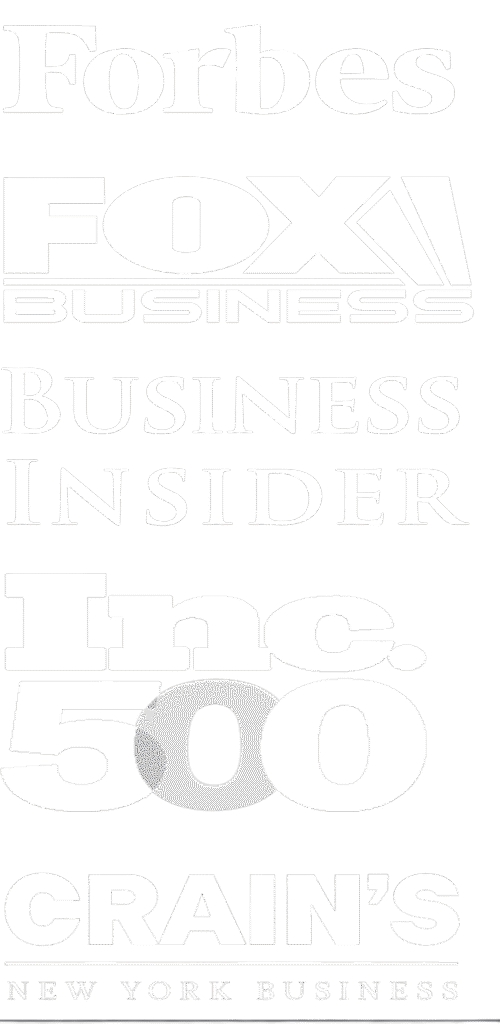
SBA loans remain one of the most powerful financing tools for small and mid-sized businesses in 2025—offering long repayment terms, competitive interest rates, and flexible use of funds. But the reality is, not every borrower qualifies.
Understanding why an SBA request gets declined is just as important as knowing the benefits. Too often, business owners and even referral partners waste weeks submitting incomplete or ineligible requests—only to find out the deal was “dead on arrival.”
At Funding Suite, we believe in educating our clients and partners upfront about what disqualifies an SBA loan request. That way, we can either fix the issues ahead of time or find an alternative financing solution.
1. Ineligible Industries & Business Models
The SBA is designed to support businesses that contribute to the U.S. economy and create jobs. Certain industries are automatically excluded:
- Speculative or investment-driven businesses
- Real estate investment holding companies (buy-and-hold rentals, passive landlords)
- Oil wildcatting or speculative mining operations
- Financial institutions
- Lending companies, payday lenders, factoring firms
- Gambling
- Casinos, racetracks, and businesses with more than 1/3 of revenue from gambling
- Illegal or restricted businesses
- Cannabis businesses remain ineligible in 2025 because marijuana is not federally legal, even if state laws allow it
- Pyramid or multi-level marketing schemes
If the core business model doesn’t fit SBA eligibility, lenders won’t even review the file.
2. Citizenship & Residency Requirements (2025 Update)
One of the most important—and often misunderstood—SBA disqualifiers in 2025 is ownership status.
- All owners with any percentage of ownership must be U.S. citizens or lawful permanent residents (green card holders).
- This applies regardless of whether the owner is a guarantor on the loan.
- Non-resident aliens, foreign partners, and temporary visa holders make the business ineligible for SBA financing.
- If a business has even a small percentage of foreign ownership (1% or more), the entire loan request will be declined unless the ownership structure is changed.
This rule frequently surprises partnerships and businesses with foreign investors. At Funding Suite, we help clients review their ownership structure in advance and make the adjustments necessary to qualify without derailing their financing timeline.
3. Weak or Negative Cash Flow
SBA loans are cash flow–driven. Lenders calculate a Debt Service Coverage Ratio (DSCR), usually requiring at least 1.15x to 1.25x coverage (meaning the business must generate 15–25% more cash than the annual loan payments).
Red flags that disqualify borrowers include:
- Consecutive years of net losses on tax returns
- Reliance on add-backs or personal income to justify repayment
- Sharp revenue declines (especially in the most recent year)
- No historical operating cash flow for startups without strong projections and equity
Funding Suite Tip: Many businesses look unqualified because their accountant minimized taxable income. We help owners restructure financials to reflect true cash flow before applying.
4. Poor Personal Credit & Character Concerns
Even though SBA loans fund businesses, lenders underwrite the individuals behind the business. Personal credit is a major factor.
- FICO scores under 640–650 are a major barrier
- Patterns of late payments, collections, charge-offs, or foreclosures raise red flags
- Prior defaults on government debt (SBA, student loans, federal taxes) are automatic disqualifiers until resolved
Credit history also ties into the SBA’s “good character” test. Open criminal cases, fraud history, or undisclosed convictions can kill a deal.
5. Overleveraged or Defaulted Debt
If a business already has too much debt relative to its cash flow, lenders may decline the request. Common deal-killers include:
- Stacked MCA loans (merchant cash advances) with daily/weekly payments
- High-interest private loans draining cash flow
- Prior bankruptcies without full discharge
- Existing SBA loans in delinquency or default
2025 Update: SBA rules now prohibit refinancing MCA debt directly into an SBA loan. At Funding Suite, we guide clients on how to restructure or refinance short-term debt into a bridge facility, making them SBA-ready later.
6. Lack of Relevant Experience
For business acquisitions, startups, or franchises, lenders look for industry experience:
- If you’re buying a restaurant but have zero food-service background, lenders won’t see you as qualified.
- Franchise buyers must show both management skills and personal liquidity to support operations.
- Lenders want to see a clear transition plan with seller support, training, or experienced managers in place.
Experience is often overlooked by borrowers but is one of the most common silent deal-breakers.
7. Bankruptcy, Legal Issues, & Tax Liabilities
SBA loans require borrowers to be in good standing with the government. Disqualifiers include:
- Active bankruptcies (personal or business)
- Major unresolved lawsuits against the business
- Past due federal taxes or liens without a repayment plan
- Ongoing legal disputes that could materially affect operations
Even if financials look strong, lenders won’t approve a deal until these issues are cleared.
8. Insufficient Equity Injection or Collateral
While SBA loans don’t always require collateral, lenders look for borrowers to have “skin in the game.”
- Acquisitions & startups usually require a 10–20% down payment
- Borrowers with zero liquidity or no personal funds to contribute will struggle to qualify
- Collateral shortfalls alone don’t kill a deal, but lenders often want real estate, equipment, or personal guarantees to reduce risk
At Funding Suite, we help clients structure combined collateral packages or secure outside investors to meet equity requirements.
9. Incomplete or Poorly Prepared Loan Packages
One of the biggest reasons deals fail isn’t qualification—it’s presentation. Incomplete packages waste lender time and get auto-rejected. Missing items often include:
- Updated financial statements
- Business plan and projections (for acquisitions/startups)
- Personal financial statement
- Tax returns (business & personal, usually 3 years)
- Debt schedule
Lenders see hundreds of packages each month. If your submission is sloppy, you’ll be passed over—even if you qualify.
At Funding Suite, we specialize in packaging deals so they’re “lender-ready,” avoiding preventable declines.
Final Thoughts
An SBA loan in 2025 is one of the best growth tools for entrepreneurs—but not every business is eligible. Disqualifiers like poor cash flow, weak credit, ineligible industries, foreign ownership, or messy financials can shut the door.
But here’s the good news: many disqualifiers can be fixed. With the right guidance, businesses can improve their financials, restructure debt, or strengthen their ownership structure to become SBA-ready.
At Funding Suite, our role is simple:
✅ Identify early if a deal is fundable
✅ Guide clients on fixing what’s broken
✅ Provide alternative financing if SBA isn’t the right fit today
📩 Not sure if your business qualifies for SBA financing? Reach out to Funding Suite for a complimentary SBA readiness review.
📞 Book a Free SBA Strategy Call
📧 info@fundingsuite.co
🌐 www.fundingsuite.co



